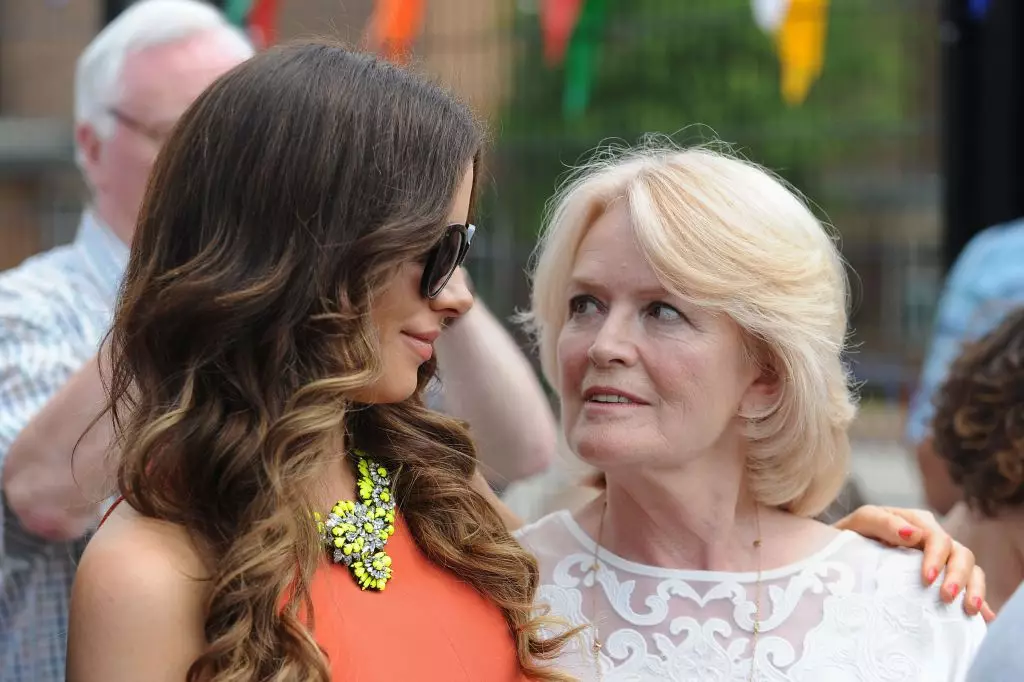In a candid and emotionally raw revelation, actress Kate Beckinsale has shared the profound loss of her beloved mother, Judy Loe. Her heartfelt message on Instagram illuminates not just the pain of losing a parent but also the complex profundity of grief that shadows a life touched by tragedy. Beckinsale’s decision to publicly mourn her mother’s passing sheds light on her authenticity and vulnerability, demonstrating that even in the world of glamour and fame, human sorrow remains universal. Her words reveal an intimate glimpse into her soul, where love, regret, and resilience coexist amidst overwhelming grief.
What strikes most about Beckinsale’s tribute is her unfiltered honesty. She admits to the difficulty of processing her mother’s death, confessing she cannot bear to sift through her memories and keepsakes yet. This candidness underscores a universal truth: mourning is a deeply personal process, often messy, unorganized, and unpredictable. Beckinsale acknowledges her paralysis, emphasizing that grief can render even the strongest individuals helpless. Her depiction of her mother as a guiding light and life’s compass resonates profoundly, illustrating a bond that was both deep and indispensable. Her mother, Judy Loe, emerges not merely as a parent but as an embodiment of hope and love in Beckinsale’s life.
Enduring Tragedy and Unspoken Pain
The narrative takes a heartbreaking turn when Beckinsale evokes the tragic memory of her father, Richard Beckinsale, who died suddenly when she was only five. Her words carry an aching sense of loss that has shadowed her entire existence—an early encounter with mortality that shaped her understanding of life’s fragility. The juxtaposition of her father’s untimely death and her mother’s ongoing battle with stage four cancer highlights a life beset by relentless grief.
Her openness about her fears and regrets reflects a raw honesty that challenges societal norms around celebrity stoicism. Beckinsale refuses to bury her suffering beneath layers of public facade, instead choosing to confront her pain head-on. This stance emphasizes that the human experience, regardless of fame or fortune, entails confronting uncomfortable truths and enduring emotional upheaval. Her admission—regret, sorrow, and vulnerability—humanizes her, making her story not just one of loss, but a testament to inner strength forged through relentless adversity.
Furthermore, her acknowledgment of the brutal reality of her mother’s suffering underscores a universal truth about terminal illness: it is an ordeal not just for the patients but also for their loved ones. Beckinsale’s suffering through her mother’s decline reveals her capacity for empathy and resilience. It also acts as a stark reminder of the fragility of life and the brutal toll of illness, often underestimated until it strikes the closest to home.
Enduring Bonds and the Power of Memory
The narrative also reveals the deep emotional connections Beckinsale maintains with her family, particularly with her stepfather, Roy Battersby. Despite his passing being relatively recent, her tribute reflects a bond that was both profound and lifelong. The anguish of losing someone so integral to her life—especially in such a tragic manner—evokes a universal sense of helplessness. Her recounting of finding her father dead at such a young age and witnessing her stepfather’s death illustrates cycles of loss that seem to define her emotional landscape.
However, her resilience is evident in her willingness to share these stories publicly. This openness could be seen as an act of defiance against grief’s paralyzing power—a testament to her determination to honor those she’s lost. It also serves to illuminate a broader message: that grief, while chaotic and painful, can be integrated into one’s life, shaping character and fostering empathy. Beckinsale’s willingness to confront her losses in the public eye demonstrates strength and a commitment to truth, inspiring others to face their own griefs with honesty.
Her narrative invites reflection on the importance of memory and legacy. Despite the pain, these losses deepen her compassion and understanding of human fragility. As she navigates her mourning, the way she cherishes her mother’s memory and shares her story underscores a vital truth: our loved ones live on through memories, not just in our hearts but in the stories we carry and share.
A Reflection of Courage in Humanity’s Most Vulnerable Moments
Kate Beckinsale’s tribute is more than just an account of loss; it is a compelling testament to the resilience of the human spirit. Her willingness to openly confront her grief, her guilt, and her love serves as a reminder that vulnerability is not a weakness but a form of quiet strength. It speaks to the universal capacity for endurance—how, even in the darkest moments, the human heart can find a way to persist and honor those who have passed.
Her story challenges us all to reconsider how we perceive grief and mourning. Instead of viewing vulnerability as a flaw, perhaps we should see it as a vital part of healing, a pathway toward authenticity and compassion. Beckinsale’s journey through loss reveals that resilience is often rooted in honesty—an enduring belief that love, once deeply held, never truly dies. It persists, transforms, and ultimately becomes part of the legacy we leave behind.
